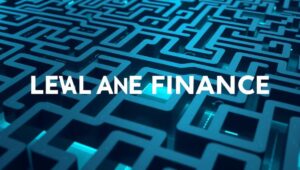Who Owns AI-Generated Content? The Legal Maze of 2028
The rise of artificial intelligence has brought with it a myriad of legal questions, none perhaps more perplexing than the issue of copyright ownership for AI-generated content. As we navigate 2028, the legal landscape remains a complex maze, with lawmakers, courts, and tech companies grappling to define the boundaries of AI’s creative domain.
The Core Question: Authorship
At the heart of the debate lies the fundamental question: who is the author? Traditional copyright law grants protection to original works of authorship, but AI challenges this concept. Is the author the AI itself, the programmer who created the AI, or the user who prompts the AI to generate the content?
Current Legal Frameworks: A Patchwork of Interpretations
As of 2028, there is no globally unified legal framework for AI-generated content. Different jurisdictions have adopted varying approaches:
- The US Approach: The US Copyright Office has generally held that AI-generated works lack human authorship and are therefore not copyrightable. However, there is ongoing debate about whether significant human input in the prompting and selection of AI-generated content could establish copyright.
- The EU Stance: The European Union is considering a more nuanced approach, potentially granting limited copyright protection to AI-generated works where there is demonstrable human creative input and control.
- Other Jurisdictions: Many countries are still grappling with the issue, with some leaning towards the US approach and others exploring alternative models.
Key Legal Challenges
Several key legal challenges complicate the issue of AI-generated content ownership:
- Originality: Determining whether AI-generated content is truly original, or simply a derivative work based on existing copyrighted material, is a complex task.
- Intent: Establishing the intent of the user in prompting the AI is crucial. Did the user intend to create a new work, or simply use the AI as a tool for generating variations of existing content?
- Attribution: Assigning proper attribution for AI-generated content is essential to avoid copyright infringement and plagiarism.
The Role of Tech Companies
Tech companies developing AI tools also play a crucial role in shaping the legal landscape. Many companies are implementing policies regarding the use of their AI tools and the ownership of content generated by those tools. These policies often vary, with some companies claiming ownership of AI-generated content and others granting users more rights.
The Future of AI and Copyright
As AI technology continues to evolve, the legal landscape surrounding AI-generated content will undoubtedly become more refined. It is likely that we will see the development of new legal frameworks that address the unique challenges posed by AI creativity. These frameworks may involve:
- A tiered system of copyright protection: Differentiating between AI-generated works with significant human input and those with minimal human involvement.
- New forms of licensing: Developing licensing models specifically tailored to AI-generated content.
- Increased transparency: Requiring tech companies to disclose the source data and algorithms used to generate AI content.
Navigating the Maze
In the meantime, navigating the legal maze of AI-generated content requires careful consideration. Users of AI tools should:
- Review the terms of service: Understand the policies of the AI platform regarding content ownership.
- Document their input: Keep records of the prompts and instructions given to the AI.
- Seek legal advice: Consult with an attorney specializing in intellectual property law to understand their rights and obligations.
Conclusion
The question of who owns AI-generated content remains a complex and evolving issue. As AI technology continues to advance, it is crucial that lawmakers, courts, and tech companies work together to establish clear and equitable legal frameworks that promote innovation while protecting the rights of creators.




